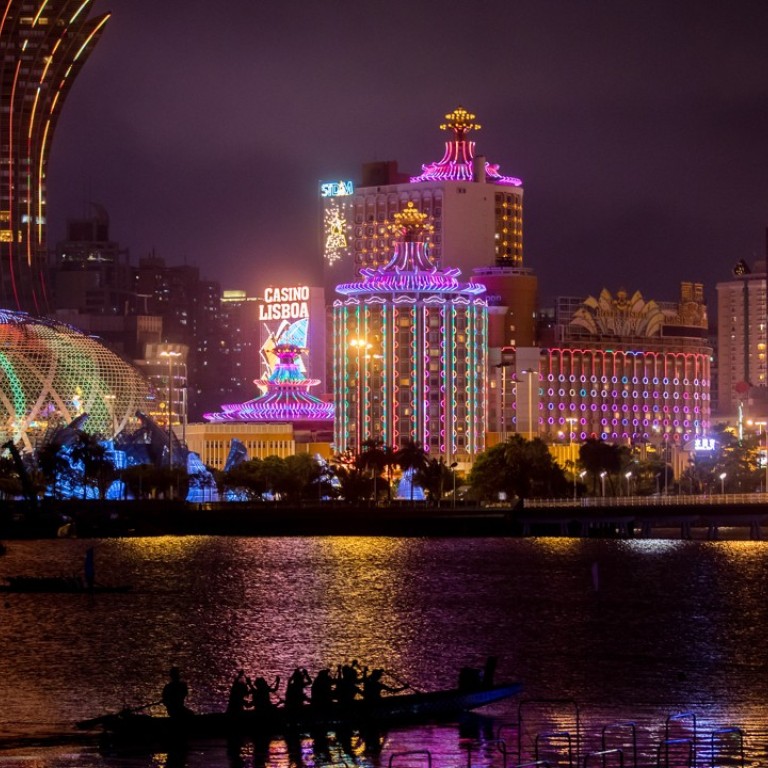
Don’t bet on legalised gambling coming to mainland China any time soon
While casinos in Macau and across East Asia cash in on the Chinese passion for betting, mainland officials are still reluctant to give any encouragement to one of the ‘three vices’, writes Steven Ribet
Since Japan’s parliament last month passed a bill to allow the establishment of giant casino resorts, a big question for the world’s gaming industry has been when will China follow suit?
Earlier this year, for example, the news agency Bloomberg raised a rumpus with reports of casinos gearing up for business on the southern island province of Hainan.
Gamblers from the people’s republic have long been the biggest prize in global gaming. Back in 2004, Peking University researcher Wang Zengxian shocked his peers with a claim that 600 billion yuan (US$88 billion in today’s terms) was flowing out of the country each year through losses at foreign casinos. If that was an exaggeration at the time, it is less so today.
The country’s special administrative region of Macau, where casinos are legal, cleared an astonishing US$33 billion in gross gaming revenue last year, nearly all from mainland punters.
And then a string of foreign gaming houses – from South Korea down through the Philippines, Vietnam, Cambodia and Singapore – make fortunes from the Chinese love of gambling.
Even casinos in Russia, Australia and on the US-administered Pacific island of Saipan relieve Chinese gamblers of billions each year.
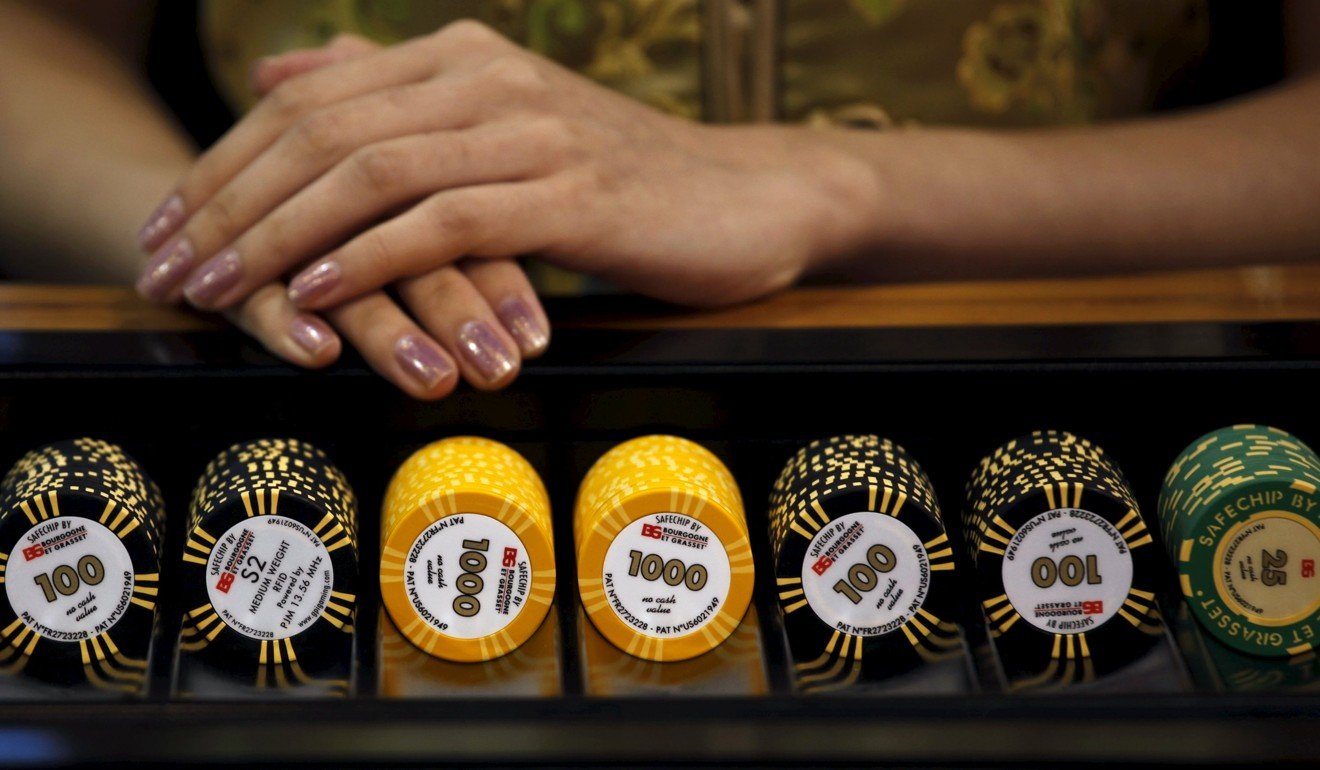
At present state-run lotteries, the only legal form of gambling in mainland China, sold over US$58 billion in tickets last year – a large proportion of which was returned as prize money.
But the ban on other forms of betting has seen it go underground, where it acts a motor for organised crime and police corruption.
If China were to copy its neighbours and allow a tightly regulated casino industry, the argument goes, the huge sums now flowing out of the country could instead be funnelled into developing domestic tourism and the government could unlock a rock-solid source of tax revenue.
“In China we get the problems associated with gambling, brought back from overseas trips. But we don’t get any of the benefits,” argues Jia Kang, formerly head of the Chinese Academy of Fiscal Studies, a think tank within the country’s Finance Ministry.
Jia has compiled research on the subject for central government to study, but says traditional communist ideology – which has long condemned the “three vices” of prostitution, drugs and gambling – is not ready to shift.
“The leadership has never discussed the problem of the outflow and how liberalisation might address it,” he says. “It’s a subject you don’t even dare to bring up. There is no indication the taboo will change.”
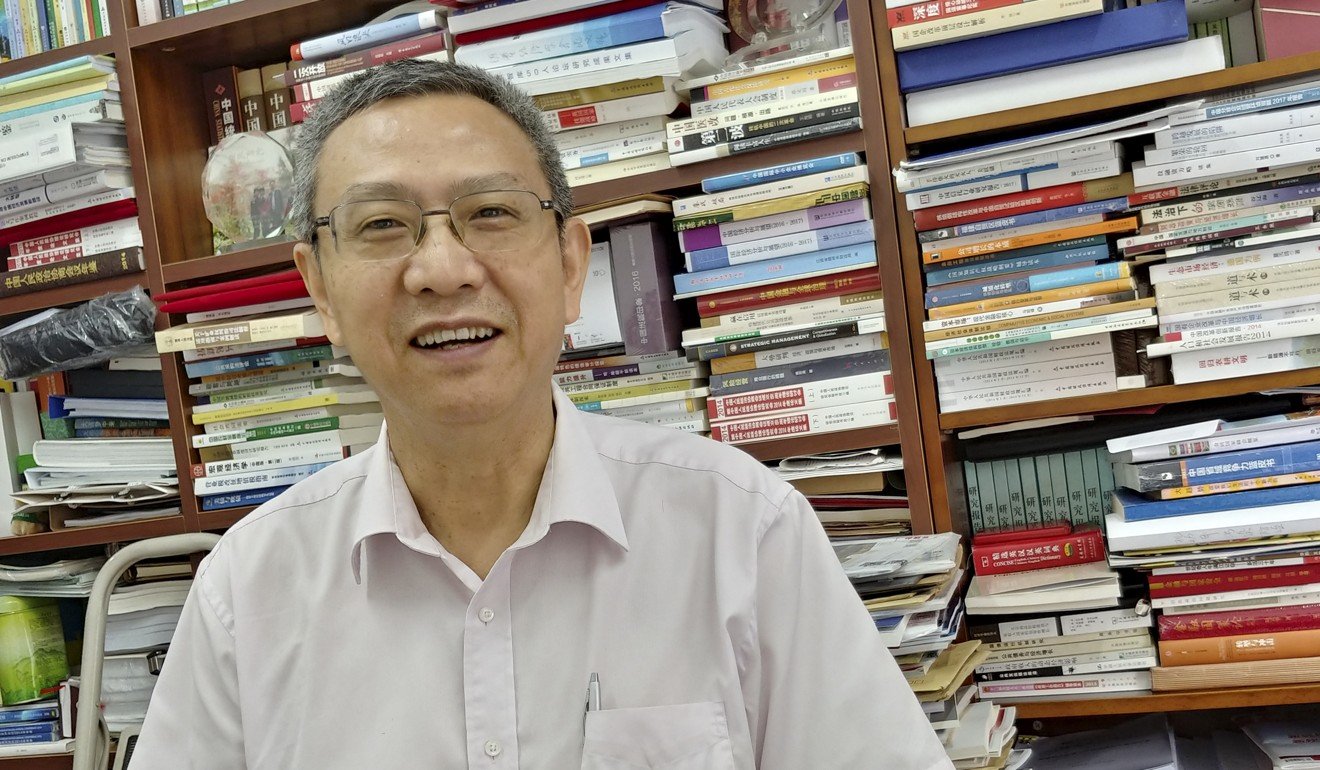
As well as ideological rigour, Jia blames a political system that discourages bold experimentation.
Hainan, for example, was given special permission to pilot pari-mutuel sports betting – which is already permitted in Hong Kong – along with other leisure activities when the central government designated it as China’s “National Tourism Island” in 2009.
Yet as Jia laments, its leaders have never dared to move. “Why take a risk that will invite attack and destroy your career if it fails?” he says.
The Chinese language has many proverbs to describe an official’s surest path to career success. One translates as “doing less is preferable to doing more”. Another is “the wise man looks after his own hide”.
Macau casinos could get caught in US-China trade war crossfire
In April the central government once again gave Hainan special pilot status, as a “free port”. This time a directive added horse racing to the list of leisure activities it is allowed to try out.
The inclusion sparked a flood of private money into horse-related industries.
The speculation is that when combined with pari-mutuel sports betting, the new dispensation will allow visitors to the island to bet on horse racing.
Yet industry veterans are sceptical. They point out that Hainan has never had a racetrack, unlike cities such as Guangzhou and Beijing, which have tried and failed to run one without allowing betting.
More than three decades of efforts to establish a domestic horse racing industry have been frustrated by the central government’s refusal to budge on the issue of betting.
The entire mainland now hosts some 60 races a year, compared with more than 700 in Hong Kong, where betting on horses is permitted and controlled by a government-appointed monopoly.
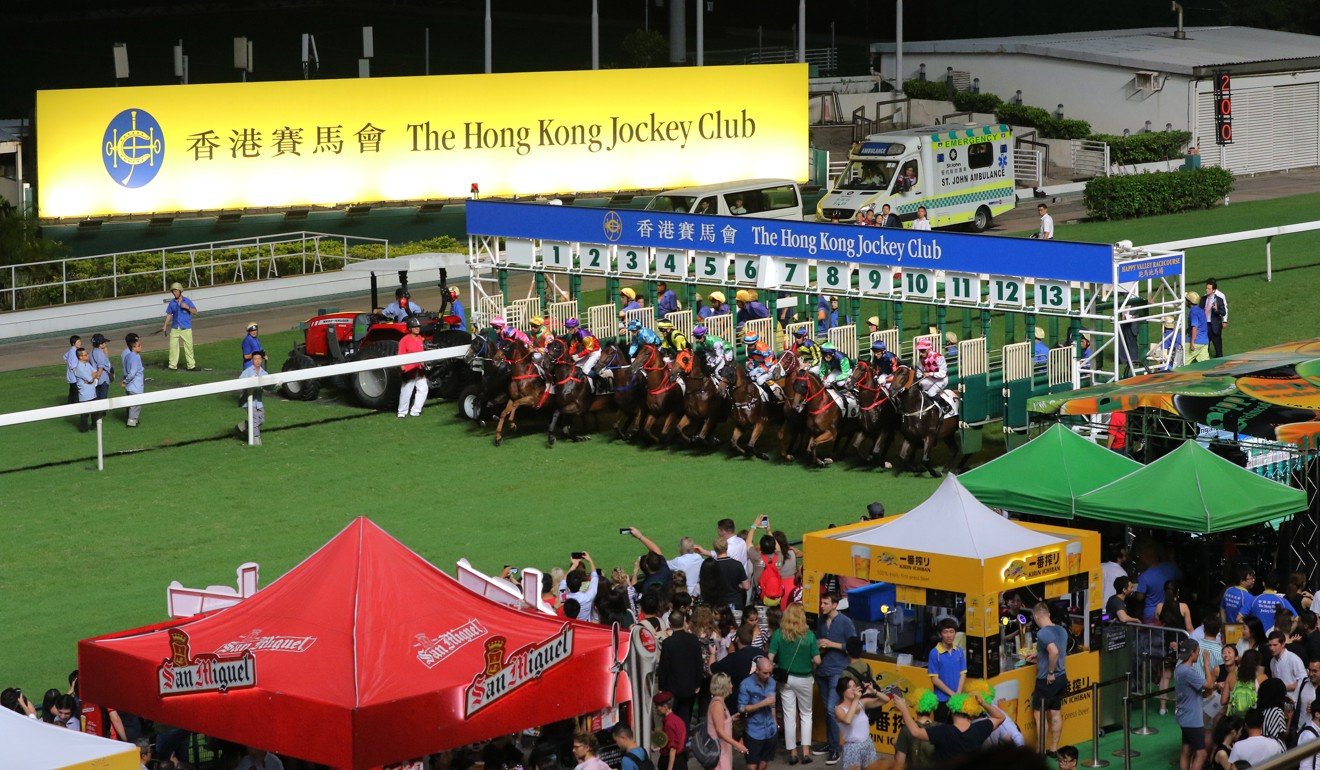
Hainan’s national status as a pilot zone for new leisure activities means that if and when mainland Chinese casinos appear, they are most likely to appear on the island.
“Hainan should realise its potential,” Jia says. “By being the first to try things out you demonstrate their worth. You change the thinking of the those that govern and you change the attitudes of society. You move forward slowly in this way, one step at a time.”
For a few years until it was raided in 2014, a Hainan resort called the Sanya Bay Mangrove actually did operate something like a small casino bar, with baccarat tables and low-stakes betting.
Instead of cash, guests bought tokens which could be won, lost or redeemed only for non-cash prizes.
The case took a curious turn in February this year when a local court ruled the offering did not “possess the traits of true gambling”, prompting speculation that other resorts on the island were looking at setting up similar operations.
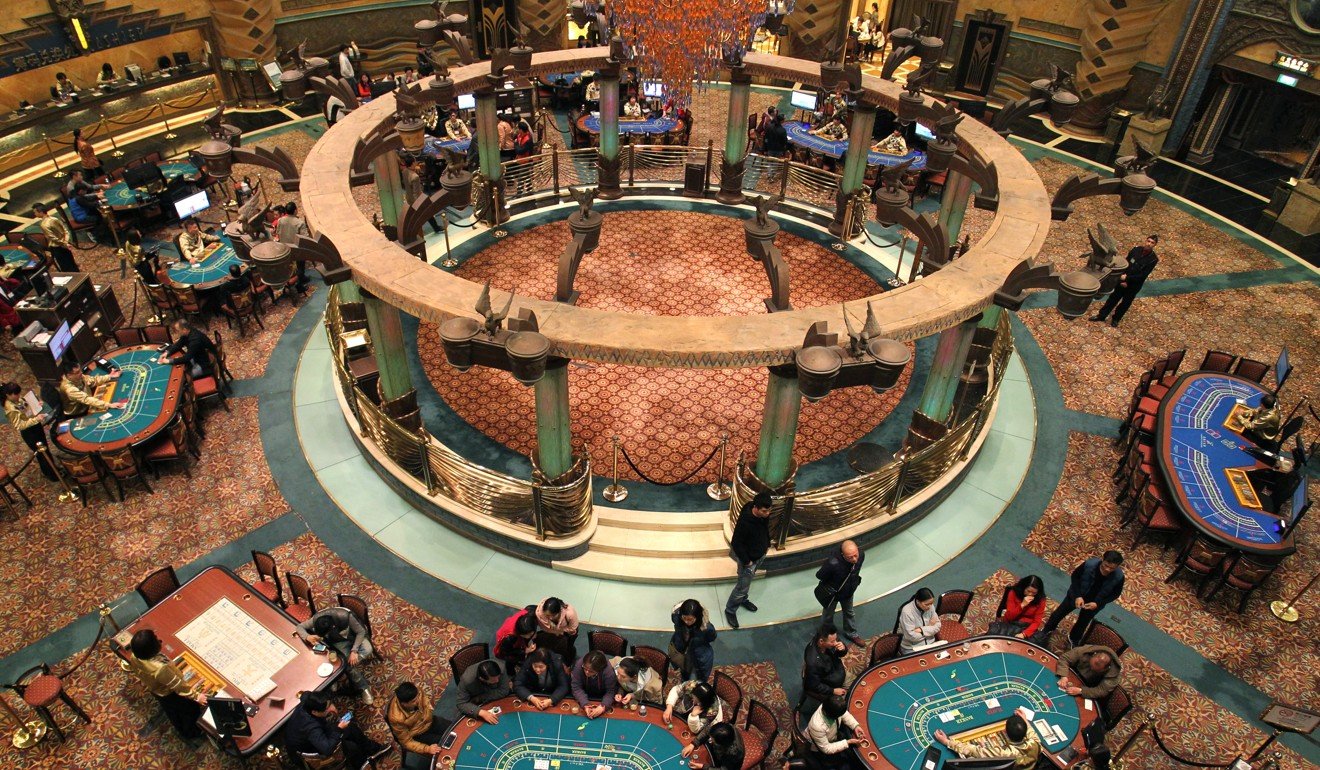
Will Hainan’s government allow similar gaming floors to operate, or move forward with sports betting? Perhaps the last word should go to the island’s new Communist Party secretary.
Last year Liu Cigui took over the top job. His predecessor Luo Baoming had held the position for six years, so there may have been expectation of change.
Yet pronouncing on Hainan’s development as a free port at the provincial congress’s plenary session in May, Liu remained true to tradition.
Macau poised to become richest place on the planet by 2020
Just like every leader before, he exhorted his government to “resolutely forbid the three vices of prostitution, drugs and gambling”.
Ostensibly to cool overheating from over investment, the authorities then banned registration of new businesses with a horse racing-related descriptions.
The annual meeting was also followed by a 46-paragraph list of recommendations on realising Hainan’s special status. It was a long document that spoke repeatedly of the need to “ease market entry”, “broaden financial reform”, “optimise the business environment” and “advance the recruitment of a thousand talents”.
In its entire 16,000 characters “horse racing” was only mentioned once. The term for sports betting did not appear at all.
